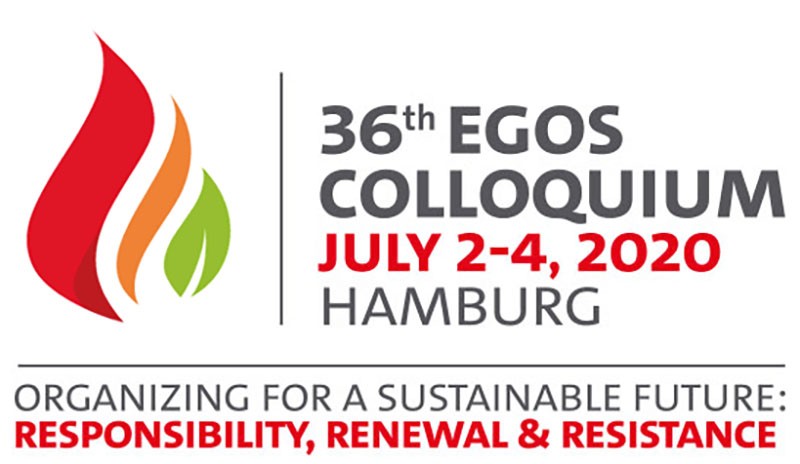Sub-theme 58: The Future of Analyzing Talk: Linguistic Theories and Methods in Organizing
Call for Papers
Language is central to processes of organizing for a sustainable future. A history of language use serves to interrelate
communities, practices, and vocabularies such that people can make sense and take action together. In the interdisciplinary
community engaged in studying organizations, examining language use is now common and a great source of insight. Yet the number
of theoretical discussions and empirical approaches is multiplying more rapidly than opportunities for cross-fertilization
and integration. The goal of this sub-theme is to provide a forum for bringing together a variety of theoretical and empirical
approaches to language, among a group of scholars interested in learning from differing perspectives and traditions. Juxtapositions
are often a source of either integration or innovation, if not both. Both will advance our ability to understand organizations,
as well as their responsibility, renewal, and resistance.
For researchers studying language, one of the primary
opportunities for integration is to bridge the divide between structure and process, between words, narratives, meanings,
metaphors, frames, repertoires, codes, and vocabularies on the one hand, and discourse, rhetoric, speech acts, sensegiving,
and translating on the other hand. There are a few efforts to bridge structure and process already underway, such as work
on narratives and narration (Vaara et al., 2016), work on arguments and argumentation (Harmon et al., 2015), and work on vocabularies
and communication processes (Ocasio et al., 2015). But there is much more to be done on these efforts as well as alternative
approaches to consider.
A second opportunity for integration is to bring together methodological approaches
into a research toolkit. We study individual words, types of words, the items to which words apply, and word co-occurrences.
We study types of communications, types of communicators, and types of communicative situations. We use qualitative and quantitative
approaches, using old and new methodologies. Examining the same dataset using more than one methodological approach encourages
weighing these approaches’ distinctive capabilities and is another great bridging opportunity. Technological advances through
computational linguistics also offers new possibilities to study complex organizational phenomena and the grand challenges
of our time.
Additional possibilities might be:
How can we study fake news and algorithms that contribute to inequality?
What aspects of language use are reflected in post truth struggles?
What is the pattern of emotional language use in organizing?
How can we capture the audience and dialogical dynamics of talk?
What does it mean for word use to resonate?
What words from one organization or collective spread to other audiences? How does that shape when and why those audiences think about the initiating collective?
Whose talk and which texts shape meanings? What ways do we have to trace the influence of a speaker or communication, and how can these help us understand coordination or change for a sustainable future?
What happens when what a word indicates switches from bad to good or good to bad? What happens when frames flip?
What is the role of language use in enabling or hindering sustainability?
In short, we seek research that explicitly seeks to fit
together different aspects of language so as to develop more innovative and more integrated understandings of organizations
and processes of organizing in a rapidly changing environment.
References
- Harmon, D.J., Green Jr., S.E., & Goodnight, G.T. (2015): “A Model of Rhetorical Legitimation: The Structure of Communication and Cognition Underlying Institutional Maintenance and Change.” Academy of Management Review, 40 (1), 76–95.
- Ocasio, W., Loewenstein, J., & Nigam, A. (2015): “How Streams of Communication Reproduce and Change Institutional Logics: The Role of Categories.” Academy of Management Review, 40 (1), 28–48.
- Vaara, E., Sonenshein, S., & Boje, D. (2016): “Narratives as Sources of Stability and Change in Organizations: Approaches and Directions for Future Research.” Academy of Management Annals, 10 (1), 495–560.


